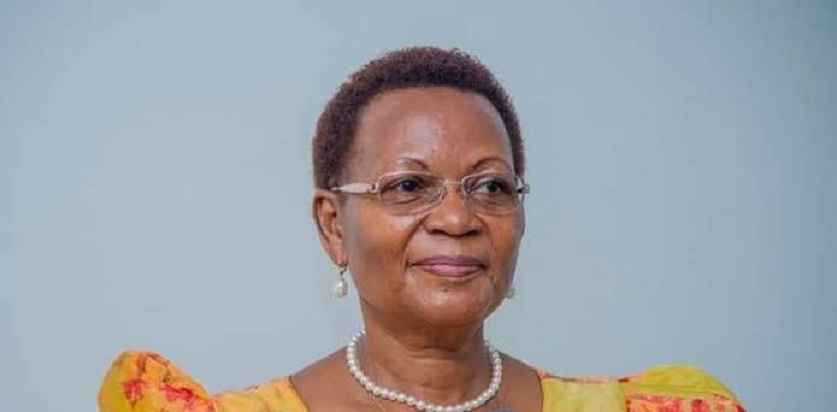A study by the Human Rights and Peace Center-HURIPEC has illustrated how the government offended the principles of Transparency and Accountability in its COVID-19 response. The principal researcher Dr. Zahara Nampewo presented the findings of the study before the Deputy Speaker of Parliament Thomas Tayeebwa at a dissemination workshop at Imperial Royal Hotel in Kampala Wednesday.
The virus that ravaged the globe from late 2019 was declared in Uganda in March 2020 when the country’s patient zero was detected at the Airport as he returned from Dubai in the United Arab Emirates. In a bid to mitigate the situation, the government availed 27.23 billion Shillings from the contingency fund to support the Ministry of Health and the Office of the Prime Minister to respond to the need.
Dr Nampewo however says, from the onset key government arms, the executive and the legislature ended up providing contradictory information on resource allocation and utilization making it difficult for the public to hold them accountable.
President Yoweri Museveni instituted lockdowns and standard operating procedures such as wearing masks, washing hands, and avoiding crowds to control the spread of the virus. The public was soon called upon to make donations to support government efforts to provide basic necessities to those who could no longer afford food.
This report however shows how in its response, the government failed to execute its mandate in a transparent and accountable manner as expected in a democracy. The gaps, according to the report, were mainly visible during the procurement process. During times of crisis, public procurement processes are often overlooked and the same happened with COVID-19 with an increase in direct procurement rather than open bidding.
“Uganda’s Ministry of Health for example spent almost one trillion Shillings to procure fabric masks for an estimated 35.3 million people during the COVID-19 pandemic without any established call to suppliers for competitive bidding as should have been” reads the report. The Ministry also used 6.4 billion Shillings in direct procurement of emergency supply of oxygen equipment for Mulago and Entebbe Referral Hospitals through Silverbacks Pharmacy Ltd.
“Such direct procurement made the process non-transparent and prone to abuse and that’s why, concern about the quality of masks purchased and their number compared to the money availed would later arise,” reads the report. The government also decided to send Shillings 100,000 to Ugandans who were registered as vulnerable and needed support to access food.
This too became an avenue for government officials to swindle money. For instance, in Gulu, a man earlier identified as the first beneficiary, a Boda Boda rider would later turn out to be a government official. The list of beneficiaries was infiltrated by government officials and their relatives who often did not qualify as beneficiaries. Dr. Nampewo says that even the choice of Post Bank and MTN as the official channels through which this money was issued wasn’t explained how it was reached.
The report further refers to the gaps in food distribution where poor-quality food was procured and no tangible consequences to the supplier’s intended beneficiaries missed food, and the fact that people who would also qualify to get the food were left out simply because they were thought to have food living in villages. The report further talks about the economic stimulus package by the government to revamp the economy.
In May 2020, the Budget Monitoring and Accountability Unit under the Ministry of Finance in its paper on the socioeconomic impact of COVID 19 observed that 23 percent of the Urban poor in Uganda were at risk of losing 100 percent of their daily income hence creating financial instability. This and other reports lay a basis for the government to avail 455.1 billion shillings through Uganda Development Bank to support entities in production, processing, and manufacturing and 260 billion shillings through Emyooga.
Dr. Nampewo says the study found that several SACCOs delayed receiving while others did not receive the Emyooga funds despite applying and qualifying for the same. As for the UDB money, she says there was no transparency on how those who secured the funds were able to while several entrepreneurs did not succeed.
The study hence recommended that the government established a comprehensive crisis response framework that helps identify, assess, control risks, and review crisis response mechanisms. Also, a more simplified procurement set of guidelines be provided for use during a crisis since the known public procurement processes may not apply during a crisis such as COVID-19.
Reacting to the report, Dickson Kateshumbwa, a former commissioner at Uganda Revenue Authority and now Sheema Municipality Member of parliament, says that Uganda still has a big problem with accountability, especially during service delivery. He says officials often present rosy accountability documents but when the services provided to the people are shoddy. But specifically, for COVID, he says things went haywire the moment formal procurement and accountability structures were abandoned.
Deputy Speaker Thomas Tayeebwa welcomed the report and said that it would be considered during Parliament’s discussion of the Auditor General’s report on the COVID-19 response. He says the Auditor General was instructed to conduct a forensic audit in the COVID-19 response which he did and submitted a report to be discussed after the budget discussion.
Former legislator Wandera Ogalo says that Parliament should own up to its mandate and hold accountable the officers in charge of entities to which they allocate resources. He says that they can choose to suspend approving new money until accountability on a previous allocation is provided. He also shares similar sentiments to former Leader of Opposition Winnie Kiiza that it is the system’s failure and absence of guidelines that create confusion in this country. And Kiiza, adds that making the president the focal point of everything is to blame for the chaos.
-URN





